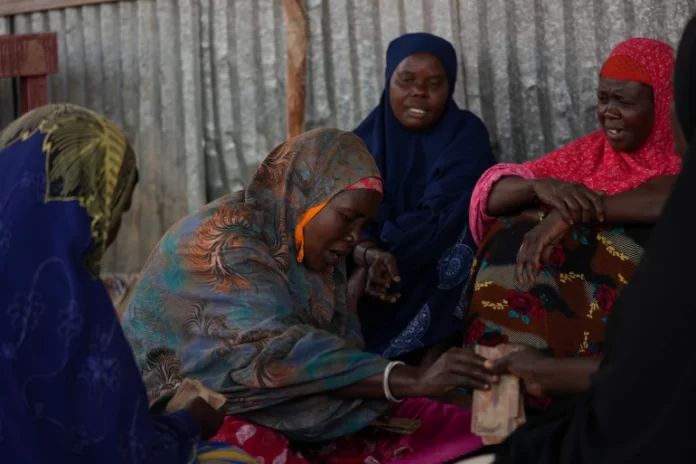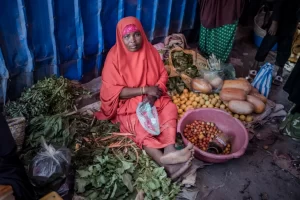Mogadishu, Somalia – A group of ten women meets once a month at Layla Hussein Tawane’s makeshift shelter in a Mogadishu camp for internally displaced people. They each bring $10 to put into a communal pot.
Tawane, the group’s leader, distributes the total amount to one person, then distributes the next collection to another, and so on, until each member has received their pot. Similar groups meet at the same time throughout the camp and in cities across Somalia.
It is an interest-free rotating savings scheme based on mutual trust known in Somali culture as Hagbad or Ayuuto (Somali for “help,” with roots in the Italian word “aiuto”). It is primarily run by women from the same neighborhood who are not only acquainted but also share similar experiences.
“When we meet to collect the money at the beginning of every month, we discuss the challenges we’re facing, including the camp’s security situation,” Tawane explained. ‘We also talk about our kids and how they are doing in school.’ More importantly, we pay attention to one another and offer assistance when we can.”
One of the members, a mother of five, requested a loan last month to help save her small grocery store, which was on the verge of closing due to financial difficulties. After seven days, the group agreed to lend her some money from the pot, which she began repaying in small amounts.
These women were among the thousands of Somali women displaced by the country’s worsening drought, and they fled to the capital with their children after losing their livelihoods.
Somalis have been trapped in an endless cycle of political instability, terrorism, famine, and recurring droughts since 1991, when the central government was overthrown. Almost three million internally displaced people are currently strewn across the country in over 2,400 camping settlements.
The Horn of Africa is experiencing the driest conditions in 40 years, with the UN estimating that more than 4.5 million people in Somalia require humanitarian aid, up from 3.2 million in December last year.
Tawane was well aware of the living conditions in the camps – usually overcrowded and neither enough food nor water. As soon as she settled in Mogadishu’s Kahda district, she mobilised women in the area to start their own Ayuuto.
But, according to experts, Ayuuto is about more than just money for Somali women.
According to Zainab Siraad, founder of the Somali Gender Equity Movement, the social lending scheme “provides a space where women come together to support one another emotionally, mentally, and share their challenges, particularly during crisis.” “They support one another in overcoming whatever obstacles they face.”
“Such self-help groups are necessary for women with limited income to save money that they would not be able to save on their own,” she added. “However, they require formal financial assistance and skills in order to not only cover their basic needs, but also to obtain loans from the private sector in order to start businesses and achieve long-term financial independence.”


